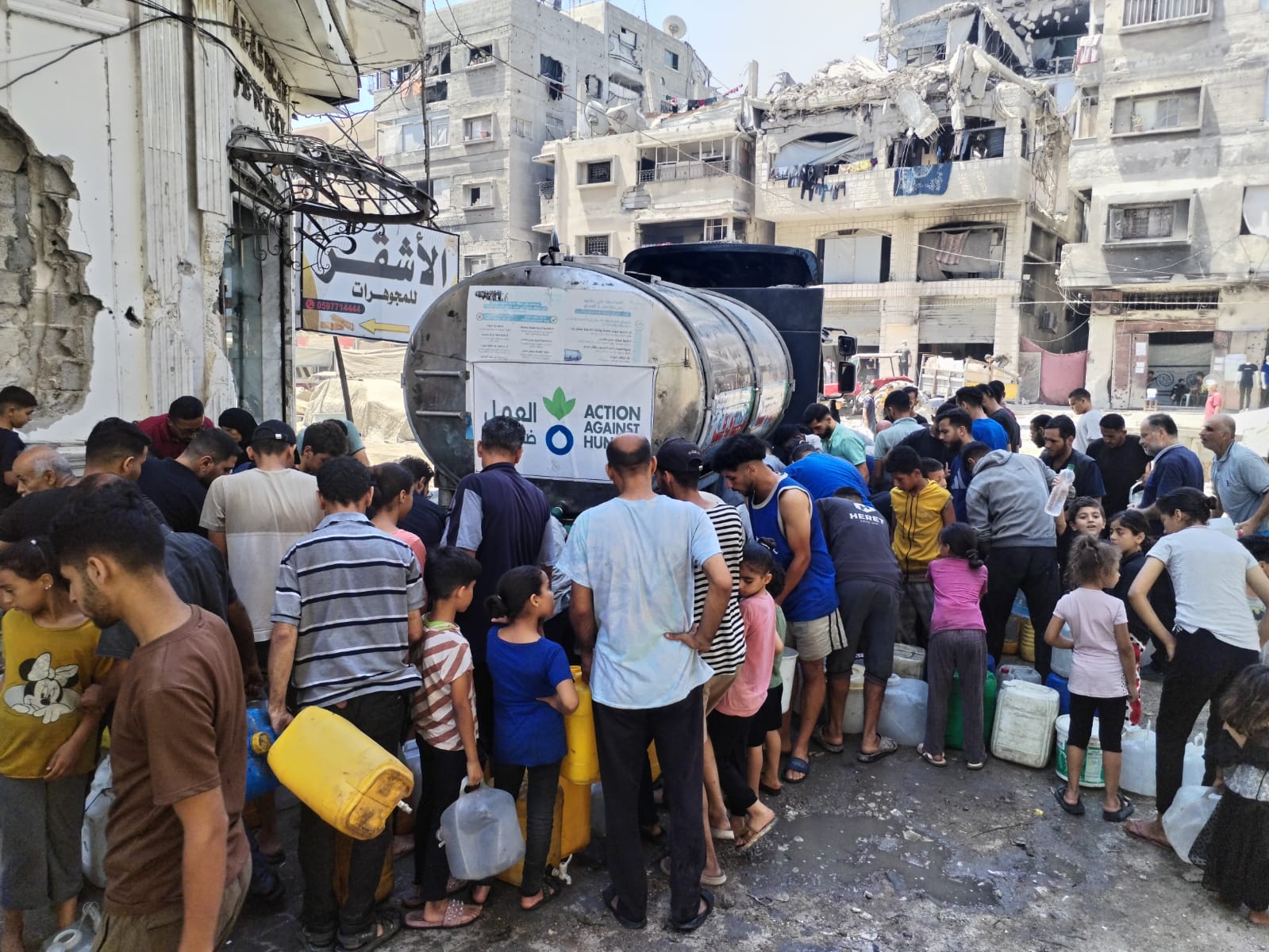- Military plans in northern Gaza aim to forcibly transfer nearly 1 million Palestinians living in Gaza City and North Gaza to areas in the middle and south of the Gaza Strip
- Six out of 13 Community-Based Management of Acute Malnutrition points are located in Gaza City, which provide nutrition screenings and treatment for malnourished children
- Action Against Hunger is warning that a planned military operation in Gaza City could have devastating humanitarian consequences for hundreds of thousands of civilians already suffering from hunger, repeated displacement and the collapse of basic services.
Families are facing an impossible choice. Leave their homes with little chance of return or risk death, injury and starvation if they stay. Forcing people south under these conditions risks constituting forcible transfer, a grave violation of international law.
Natalia Anguera, Head of Operations for the Middle East for Action Against Hunger, said:
“What we are seeing in Gaza City is not just a crisis, it is a collapse of human survival. Families are hungry, exhausted, grieving, and can’t imagine having to move their children, some for the twenty-sixth time in less than two years. Despite our teams’ relentless efforts, they too are facing this same collapse.”
The human cost of any new offensive will be overwhelming, and Action Against Hunger teams are also facing displacement and losing access to critical areas where water networks, food distributions, and nutrition services are currently active.
Action Against Hunger has established more than six Community-Based Management of Acute Malnutrition sites across Gaza City and three Mother and Baby Friendly Spaces. In July and August alone, its teams treated more than 400 cases of malnourished children, 20 per cent of them being severely malnourished. Any disruption of these services would put the lives of thousands of children, pregnant and breastfeeding women, at risk.
Water and sanitation are also under threat. Water availability in Gaza City has dropped by 70 per cent due to fuel shortages and damage to infrastructure, forcing reliance on emergency water trucking, which itself is threatened by ongoing bombardments, ground operations, and displacement orders. Many families lack the means to collect and store the limited water delivered. Without restoring water and sanitation infrastructure, the population face a heightened risk of starvation and disease outbreaks.
An Action Against Hunger staff member, said:
“It is hard to imagine nearly one million people coming back to the South. I don’t know how to showcase this. There is no shelter anymore. There are no tents, no tarps. People are making shelters out of nothing.”
Natalia Anguera, Head of Operations for the Middle East for Action Against Hunger, added:
“At Action Against Hunger, we reaffirm once again our commitment to serve people wherever they are, and we will, for as long as we can, remain present in Gaza City to provide lifesaving support.”
“Forcible transfer constitutes a grave violation of international law. We urge all parties to the conflict to respect international humanitarian law and ensure safe access for humanitarian personnel and supplies.”
Action Against Hunger reiterates its call for a permanent ceasefire, the unconditional release of all hostages and detainees, and full, large-scale, and sustained access for humanitarian actors.
We also remind all parties to the conflict that any evacuation must be temporary and that families must be allowed to return to their homes when hostilities have ceased. All displaced populations must have safe and dignified access to shelter, water, food, and healthcare.


